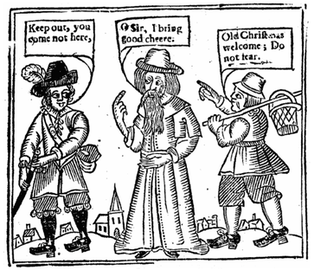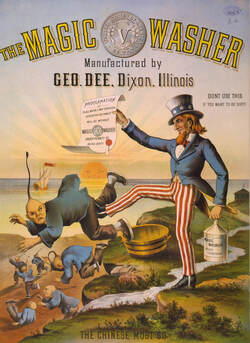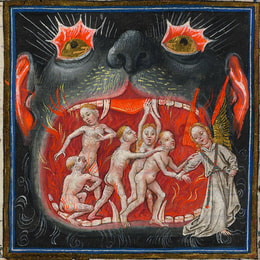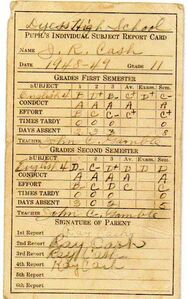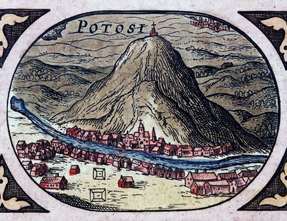1 Comment
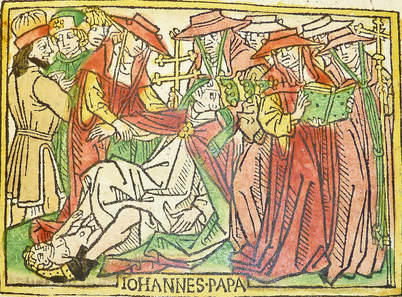
One of the most famous stories about the medieval papacy is that, supposedly sometime in the 9th or 11th century, there was a woman named Joan who disguised herself as a man and became Pope John. While it might sound like a modern, anti-Catholic creation, this story was actually invented in the Middle Ages. In this episode, Nathan returns to the realm of medieval conspiracy theories to talk about the medieval origins and development of the myth of Joan, as well as the social role of conspiracy theory.
Podcaster: Nathan 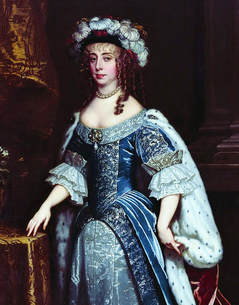
Poet, playwright, philosopher, science theorist, and science fiction author--just a few of the occupations held by the 17th-century noblewoman, Lady Margaret Cavendish. One of the towering intellects of her day, Cavendish was a prodigious writer who was by her own account painfully shy, but whose works were revolutionary in their imaginativeness and insight. In this episode, we will explore the life of this remarkable woman, the story of her family during the tumult of the English Civil War, and how she navigated the male-dominated intellectual world of Stuart England.
Podcaster: Nathan 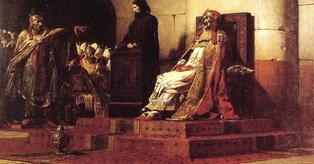
When popes are elected today, the cardinals of the Catholic Church meet in secret conclave. But it wasn't always so. In the 9th through 11th centuries, control of the Chair of St. Peter was fiercely contested between several Roman families, who put their sons, brothers, and lovers on the papal throne. In this episode, we will look at the murders, depositions, adultery, illicit relationships, trials of papal cadavers, and debauched behavior that allegedly characterized this period, as well as the important role played by two Roman noblewomen--Theodora and Marozia Theophylacti--that led some 19th century historians to label this as a "pornocracy."
Podcaster: Nathan 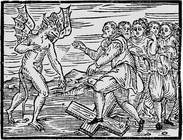
In 1486, two German inquisitors published a treatise on the nature and prosecution of witches: the Malleus Maleficarum or "Hammer of the Witches." This work overturned centuries of Catholic teaching regarding sorcery and witches, turning them into dark agents of evil who drew power from sexual union with the Devil himself. In this episode, we look at the origins of this text and how it led to the deaths of thousands of innocent people in the sixteenth and seventeenth centuries.
Podcaster: Nathan 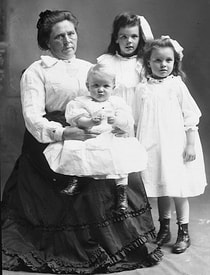
In the quiet town of La Porte, Indiana at the beginning of the 20th century lived a widow farmer with three children. Originally from Norway, Belle Sørenson Gunness was, like many widows in the period, in search of a husband to help work her lands and provide for her family--until one night, a tragic fire revealed that all was not as it appeared. In this week's episode, we examine the grisly tale of how the outwardly unassuming Belle killed at least nine male suitors and probably two husbands, and the terrible methods that she used to evade capture.
Podcaster: Nathan 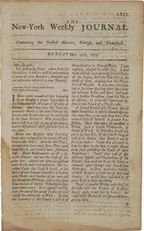
In the First Amendment to the US Constitution, tucked between the freedom of speech and right of assembly, is a protection of the freedom of the press. But why did the Framers feel the need to include it? The answer lies in the early history of the newspaper, when broadsheet publications were small-time startup operations that were sometimes suppressed by the British government. In this week's episode, Nathan looks at the early history of print media in the United States, the role of libel and censorship, and the trial of a German immigrant printer that changed it all.
Podcaster: Nathan 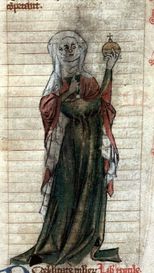
Imagine you were a medieval woman suffering from fertility problems or an irregular period. How would you deal with these issues, and what kinds of treatments might your physician prescribe? To what lengths would you go, what substances would you be willing to ingest or insert in order to solve menstrual cramps, conceive a child, or whiten your teeth? In this week's episode, we explore one of the most famous manuals of medieval gynecology and the ways women in the Middle Ages cared for their health and appearance.
Podcaster: Nathan 
Most people think of Fredonia as the fictitious country of the Marx Brothers film, Duck Soup, but Fredonia was actually a country...sort of. In 1826, a hot-tempered Virginian 'colonist' named Haden Edwards created an alliance with a local Cherokee tribe and led a short-lived rebellion against Mexican rule in East Texas that resulted in his proclamation of the Republic of Fredonia, which existed for just over a month. In this episode, we explore the circumstances surrounding Edwards' rebellion, the colony he created, and the aftermath of Fredonia's collapse.
Podcaster: Nathan 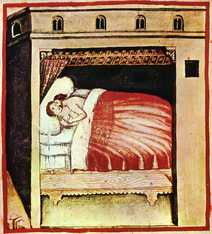
In the mountains of fourteenth-century Southern France lived a woman named Beatrice de Planissoles, whose story remained largely unknown until the mid-20th century. In this episode, we will explore her remarkable life--her sexual affair with the town priest, her relationships with her neighbors, the contraceptive device she wore, the contents of her purse, her abuse at the hands of powerful men, and her trial for heresy--and how it changed the study of medieval history.
Podcaster: Nathan 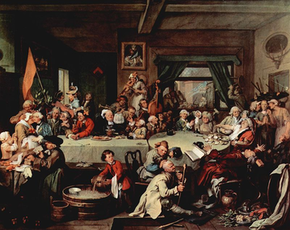
In the eighteenth century, the British Parliament undertook a monumental task of fixing the calendar. Due to a problem with the Julian Calendar, which had been in use since ancient Rome, the calendar was eleven days off of where it should fall in reference to the solar cycle. In this episode, we'll trace the history of the Julian and Gregorian calendars and how it took nearly 500 years to universally implement.
Podcaster: Nathan 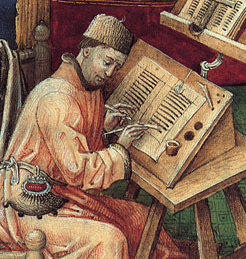
In the mid-9th century, a group of Frankish bishops created one of the greatest forgeries in medieval history, making up an entire collection of fake letters and church law. Attributed to a Spanish author, "Isidore the Merchant," this canon law collection--the Pseudo-Isidorian Decretals--was cited and reused for almost 600 years before the forgery was discovered. In this episode, we'll uncover the motivations for this little-known forgery and how the bishops managed to pull it off.
Podcaster: Nathan 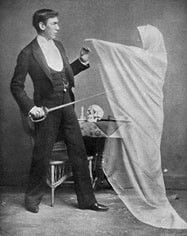
Last year we brought you History for Halloween, a trio of short true tales perfect for the spookiest of holidays. This year we're doing it again, so join us for a selection of stories spanning places from Oxford to Philadelphia that are sure to make you glad they didn't happen to you.
Podcasters: Christine, Elizabeth, Lesley, Lucy, and Nathan 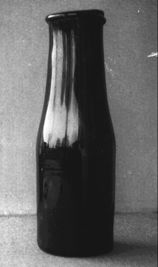
Diversity is the key to any well-rounded diet, but variety can be hard to come by if food has to be rapidly consumed to avoid spoilage. Millenia-old methods of salting, pickling, and curing only worked with certain foods and were greatly limited in terms of their applications. It wasn't until the French Revolution that modern methods of food preservation were discovered by a French chef, Nicolas Appert. In this episode we explore the military needs that spurred Appert's innovation and the ways in which his "canning" approach was improved over the course of the next century.
Podcaster: Nathan 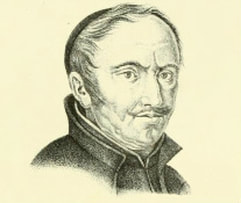
What if everything you ever knew about history and classical literature was fundamentally wrong? What if there were a massive conspiracy, set in motion by medieval monks, to create entire bodies of literature and claim they were much older, or to invent centuries of history? In this episode, we trace the pseudo-history of the great "monastic conspiracy" from its origins in the writings of a French Jesuit in the 17th century to the bizarre New Chronology of a Russian mathematician in the 20th.
Podcaster: Nathan 
Nathan spoke to Asif Siddiqi, the only historian on the "Committee for Human Spaceflight," which recently completed its two year study on the future of NASA's efforts to send human beings into deep space. They discussed the history of space exploration, the report's recommendations, and also reflects on his role as a historian able to shape current policy.
Podcaster: Nathan |
Site Map |
© 2013-2024 Footnoting History. All rights reserved.
Footnoting History and the Footnoting History logo
are trademarks of Footnoting History, NY. Footnoting History operates under a SAG-AFTRA Micro-Monetized Podcast Agreement. |


